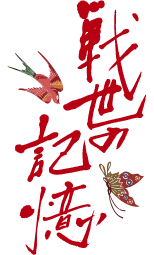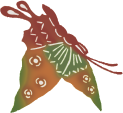
“Circumstances in Karimata Village, Miyako District during the War”
“Circumstances in Karimata Village, Miyako District during the War”
Shomei Nema, 83 years old
(Place of birth: Karimata, Hirara Village, Miyako District, Okinawa Prefecture)
“Japan will win the war.” That was the only idea I believed in. The Pacific War broke out in December 1941. At the beginning of the war, when we received news saying that the Japanese were winning battle after battle, students in the village held a parade. We had joint training as a part of the school lessons back then and were forced to say loudly “Annihilate the American and British!” The typical lesson at the school was “Japan is the land of the gods and will never lose the war. All enemies will be blown away by the divine wind if they come to attack us.” We were educated in this way.
As the war progressed, the Japanese started losing battles one after another and the parade was gone. When I became a fifth grader, our elementary school became an army hospital. As we had no classroom, we brought our desks and chairs to the young men’s association halls and places of worship, which we had at four locations in the village, and had lessons there. After becoming fifth graders, all boys were forced to bring pandanus palm leaves woven into the form of string approximately 1 cm in width to school to make straw mats for the soldiers. The contribution work such as this became our schoolwork.
(Situation under the air raid)
As air raids became fierce, since we were not able to go to school, we took refuge in the air-raid shelters and practically lived there until the war was over in August 1945. We stayed in the air-raid shelters made inside of our residences at first, but as the air raid became fierce, we moved to natural caves that we called gama. The air raids were always surprise attacks and some of the people who remained in their residences were killed by the machine guns. We always prepared our food at night as there were no air raids at night. However, all we had for food were potatoes and miso.
(After the war)
After the war, American soldiers landed from the LST (Landing Ship Tank), called a landing craft back then, and came into our village. We all were scared. The women took precautions and were hiding themselves from the American soldiers.
After being defeated, the Japanese Army disposed of gunpowder, cannon balls and other things off the coast of Karimata Village and into the sea between Irabu and Ikema. Since the things were packed in boxes, they floated back up to the sea surface after a while and eventually the sandy beach of Karimata Village was covered with boxes. Some young men were having fun with throwing hand grenades into the sea after removing the detonating fuse with their teeth and some injured themselves by accident.
(Back to the story during the war)
There was a Japanese Navy base in Hakkou Bay to the north of our Karimata Village and the area was off-limits. The Japanese Navy was manufacturing submarines for a suicide attack there. In addition, Hakkou Bay was the base for firing torpedoes and they stored the torpedoes in the natural caves.
A Japanese food vessel was attacked and sunk. The vessel sank approximately 15 m off-shore. As food was scarce, a fisherman dove down to the vessel and brought back some of the food in the vessel to sell on the beach of Karimata. Because of the poor food supply, we had to do whatever we could to survive until the war was over.
(Looking back at the war)
Just like everyone says, we should not go to war. We should never start war or fight wars either. Because I have experienced the Pacific War, I strongly feel this way.
Shomei Nema, 83 years old
(Place of birth: Karimata, Hirara Village, Miyako District, Okinawa Prefecture)
“Japan will win the war.” That was the only idea I believed in. The Pacific War broke out in December 1941. At the beginning of the war, when we received news saying that the Japanese were winning battle after battle, students in the village held a parade. We had joint training as a part of the school lessons back then and were forced to say loudly “Annihilate the American and British!” The typical lesson at the school was “Japan is the land of the gods and will never lose the war. All enemies will be blown away by the divine wind if they come to attack us.” We were educated in this way.
As the war progressed, the Japanese started losing battles one after another and the parade was gone. When I became a fifth grader, our elementary school became an army hospital. As we had no classroom, we brought our desks and chairs to the young men’s association halls and places of worship, which we had at four locations in the village, and had lessons there. After becoming fifth graders, all boys were forced to bring pandanus palm leaves woven into the form of string approximately 1 cm in width to school to make straw mats for the soldiers. The contribution work such as this became our schoolwork.
(Situation under the air raid)
As air raids became fierce, since we were not able to go to school, we took refuge in the air-raid shelters and practically lived there until the war was over in August 1945. We stayed in the air-raid shelters made inside of our residences at first, but as the air raid became fierce, we moved to natural caves that we called gama. The air raids were always surprise attacks and some of the people who remained in their residences were killed by the machine guns. We always prepared our food at night as there were no air raids at night. However, all we had for food were potatoes and miso.
(After the war)
After the war, American soldiers landed from the LST (Landing Ship Tank), called a landing craft back then, and came into our village. We all were scared. The women took precautions and were hiding themselves from the American soldiers.
After being defeated, the Japanese Army disposed of gunpowder, cannon balls and other things off the coast of Karimata Village and into the sea between Irabu and Ikema. Since the things were packed in boxes, they floated back up to the sea surface after a while and eventually the sandy beach of Karimata Village was covered with boxes. Some young men were having fun with throwing hand grenades into the sea after removing the detonating fuse with their teeth and some injured themselves by accident.
(Back to the story during the war)
There was a Japanese Navy base in Hakkou Bay to the north of our Karimata Village and the area was off-limits. The Japanese Navy was manufacturing submarines for a suicide attack there. In addition, Hakkou Bay was the base for firing torpedoes and they stored the torpedoes in the natural caves.
A Japanese food vessel was attacked and sunk. The vessel sank approximately 15 m off-shore. As food was scarce, a fisherman dove down to the vessel and brought back some of the food in the vessel to sell on the beach of Karimata. Because of the poor food supply, we had to do whatever we could to survive until the war was over.
(Looking back at the war)
Just like everyone says, we should not go to war. We should never start war or fight wars either. Because I have experienced the Pacific War, I strongly feel this way.


